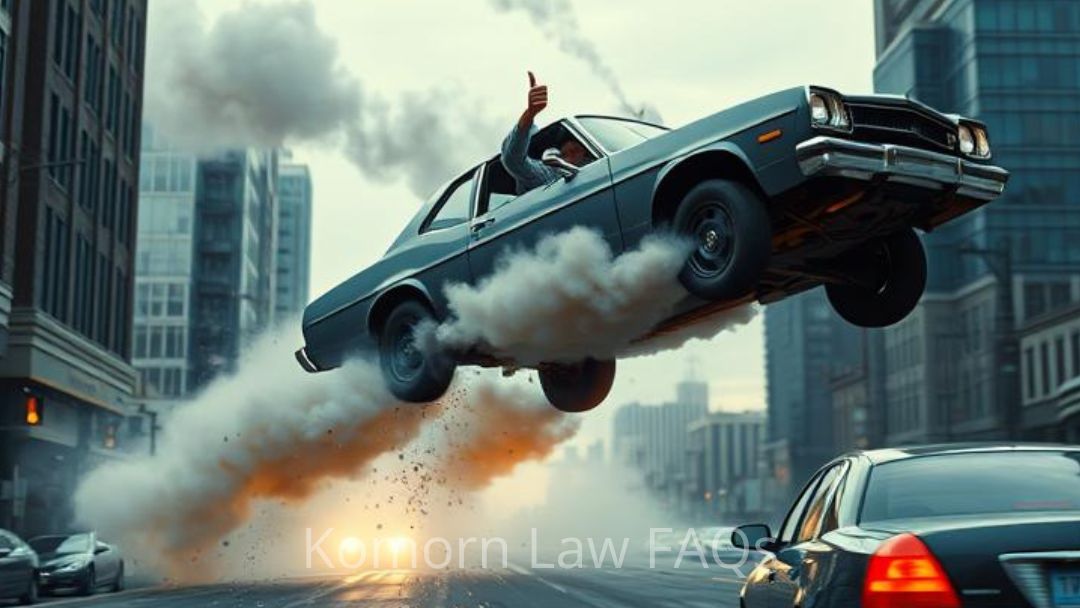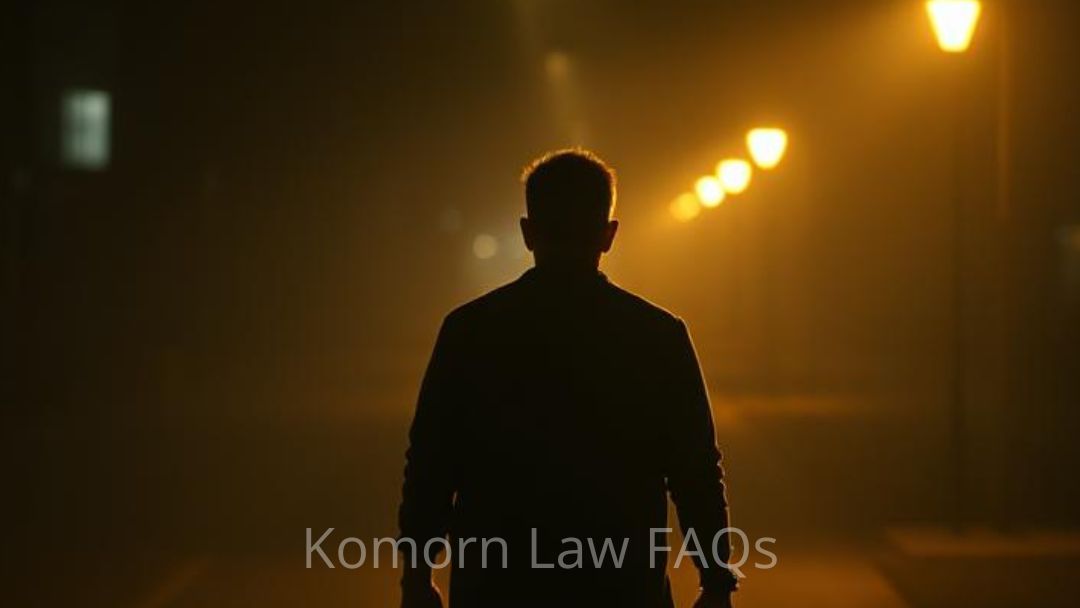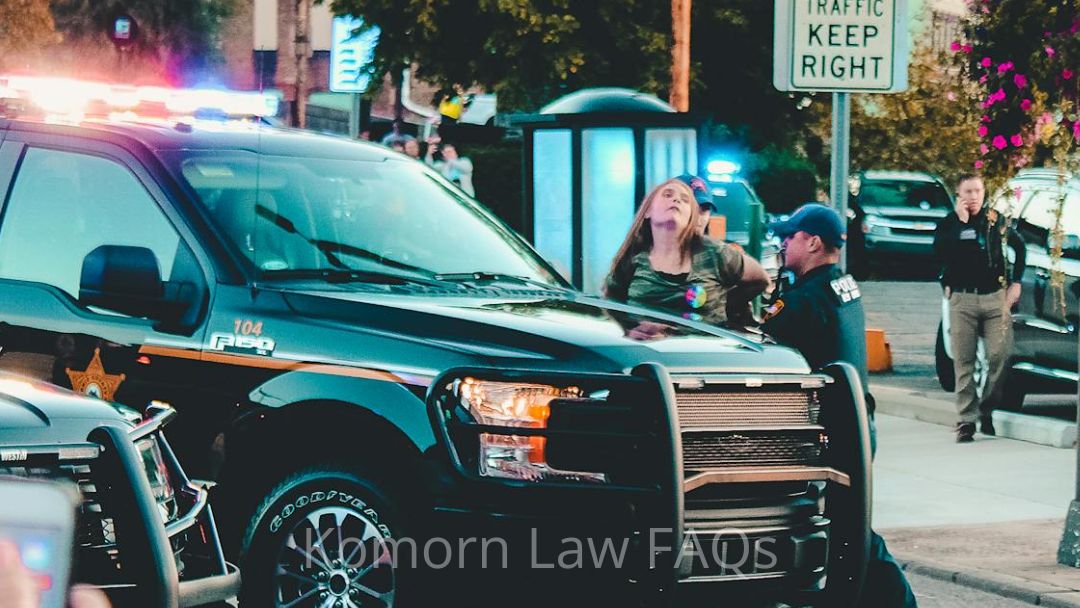Michigan Criminal Laws FAQs Drunk and DisorderlyAccording to Michigan State Law (Michigan Compiled Laws - MCL), there isn't a specific statute that solely defines "Public Drunkenness" as a statewide criminal offense in the same way some other states might have a...

Criminal Law FAQs – Traffic Offenses
Michigan Criminal Laws FAQs
Traffic Offenses
According to Michigan State Law (Michigan Compiled Laws – MCL), Traffic Offenses encompass a wide range of violations related to the operation of motor vehicles on public roads and highways. These offenses are primarily governed by the Michigan Vehicle Code (MCL 257.1 et seq.) and include actions that endanger public safety, impede traffic flow, or violate regulations concerning vehicle equipment, registration, and driver licensing. While Operating While Intoxicated (OWI) is a significant category of traffic offenses, this blog post focuses on other violations.
FAQ 1: What are the potential consequences of speeding tickets and other traffic violations in Michigan?
The potential consequences of speeding tickets and other traffic violations in Michigan, as generally outlined in MCL 257.901 et seq. and related sections, can vary significantly depending on the specific offense. These consequences can include:
- Fines: Monetary penalties that can range from a few dollars to hundreds of dollars, depending on the severity of the violation and local ordinances. Speeding fines, for example, often increase with the number of miles per hour over the limit.
- Points on Your Driving Record: The Michigan Secretary of State’s office assigns points to your driving record for most moving violations. Accumulating too many points can lead to license suspension or revocation (as discussed in FAQ 2).
- Increased Insurance Premiums: Insurance companies often consider points on your driving record when calculating premiums. Multiple violations or more serious offenses can result in significantly higher insurance rates.
- Court Costs and Fees: In addition to fines, you may be required to pay court costs and other administrative fees associated with the traffic ticket.
- Driver Responsibility Fees: For certain more serious traffic violations, the state may impose additional Driver Responsibility Fees, which are separate from fines and court costs.
- License Suspension or Revocation: As mentioned, accumulating too many points can lead to the suspension or revocation of your driver’s license. Certain serious offenses, such as reckless driving or failing to stop at the scene of an accident, can also result in immediate license suspension or revocation.
- Jail Time: While less common for minor traffic infractions, certain more serious traffic offenses, such as reckless driving causing injury or death, can carry potential jail or prison sentences.
- Community Service: In some cases, the court may order community service as part of the penalty for a traffic violation.
- Mandatory Driver Improvement Courses: For certain violations or upon accumulating a certain number of points, the Secretary of State may require you to attend a driver improvement course.
FAQ 2: Can I lose my driver’s license for accumulating too many points?
Yes, you can lose your driver’s license in Michigan for accumulating too many points on your driving record, as governed by MCL 257.320 and related administrative rules. The Michigan point system assigns a certain number of points to different traffic violations. If you accumulate a specified number of points within a certain timeframe, the Secretary of State is required to take action against your driving privileges:
- Accumulating 12 points within a 2-year period: Can result in a driver re-examination.
- Accumulating more points within specific timeframes can lead to license suspension:
- 12 points within 2 years: Potential for license suspension.
- More points accumulated over longer periods can also lead to suspensions.
The duration of the suspension typically increases with the number of points accumulated. It’s important to be aware of the points associated with different traffic violations and to drive responsibly to avoid accumulating excessive points. The Secretary of State will notify you if you are facing license suspension due to points.
FAQ 3: What is reckless driving in Michigan?
MCL 257.626 defines reckless driving in Michigan as operating a vehicle upon a highway or other place open to the general public, including an area designated for the parking of motor vehicles,
Key elements of reckless driving include:
- Willful or Wanton Disregard: This means acting intentionally or with a conscious indifference to the consequences, knowing that the conduct is likely to cause harm. It’s more than just ordinary negligence or carelessness.
- Safety of Persons or Property: The conduct must pose a significant risk to the safety of individuals or property.
Examples of actions that could be considered reckless driving include:
- Excessive speeding in hazardous conditions.
- Weaving in and out of traffic.
- Passing in no-passing zones with oncoming traffic.
- Ignoring traffic signals or signs in a dangerous manner.
- Engaging in “road rage” behavior while driving.
Reckless driving is a more serious traffic offense than typical speeding or minor infractions and carries more severe penalties.
FAQ 4: What should I do if I receive a traffic ticket in Michigan?
If you receive a traffic ticket in Michigan, you generally have a few options:
- Plead Guilty (Admit Responsibility): You can pay the fine and any associated costs by the due date indicated on the ticket. By doing so, you are admitting responsibility for the violation, and points may be added to your driving record.
- Plead Not Guilty (Deny Responsibility): You can indicate that you wish to contest the ticket. This typically involves contacting the court within the specified timeframe to schedule a hearing. At the hearing, you will have the opportunity to present your case to a judge or magistrate.
- Request a Formal Hearing (Civil Infraction): For civil infractions (most traffic tickets), you can request a formal hearing where the police officer who issued the ticket must be present and prove the violation.
- Request a Informal Hearing (Civil Infraction): You can also request an informal hearing where you can discuss the ticket with a court official (often a magistrate or referee), and the officer may or may not be present. This can sometimes lead to a reduced fine or a non-moving violation.
It’s important to carefully read the information on your ticket for specific instructions and deadlines for responding to the court. Failing to respond can result in additional penalties, such as late fees and potential license suspension.
Recent FAQ Posts – More Below
Criminal Law FAQs – Drunk and Disorderly
Criminal Law FAQs – Drinking Alcohol or Smoking Marijuana and Driving
Michigan Criminal Laws FAQs Operating a Motor Vehicle Under The InfluenceWalking is cool... For fun and excercise. Not because you lost your license. Don't do the crime if you can't pay the price. But if you do get charged with a crime. Better Call Komorn to fight for...
Criminal Law FAQs – Probation Violations
Michigan Criminal Laws FAQs Theft CrimesAccording to Michigan State Law (Michigan Compiled Laws - MCL), a Probation Violation occurs when a person who has been sentenced to probation fails to comply with the terms and conditions of their probation order. These terms...
FAQ 5: Should I hire a lawyer for a traffic ticket in Michigan?
Whether you should hire a lawyer for a traffic ticket in Michigan depends on the severity of the charge and the potential consequences. Consider hiring a lawyer if:
- You are facing a serious traffic offense: Charges like reckless driving, driving with a suspended license, or violations that could result in jail time or significant license suspension often warrant legal representation.
- You have accumulated a significant number of points on your driving record: A lawyer may be able to help you avoid further points that could lead to a license suspension.
- You believe the ticket was issued in error or you have a strong defense: A lawyer can help you build your case and present it effectively in court.
- You are concerned about the impact on your insurance rates: In some cases, a lawyer may be able to negotiate a resolution that minimizes the impact on your insurance premiums.
- You are a commercial driver (CDL holder): Traffic violations can have serious consequences for CDL holders, potentially affecting their livelihood. Legal representation is often advisable.
For minor speeding tickets or non-moving violations, hiring a lawyer may not be cost-effective. However, for more serious offenses or situations where your driving privileges are at risk, consulting with an attorney experienced in Michigan traffic law can be a wise decision. They can advise you on your rights, explore potential defenses, and represent you in court to achieve the best possible outcome.
Facing a Traffic Violation in Michigan?
Facing a Traffic Violations charge in Michigan can have serious consequences affecting your driving privileges, job, finances, and even your freedom. It’s crucial to understand your rights and explore all available legal options.
Contacting an experienced criminal defense attorney as soon as possible is essential. At Komorn Law, our attorneys have a deep understanding of Michigan’s laws and can provide you with a strong defense to protect your rights and future. Call 248-357-2550
Komorn Law
Accused of Traffic Violation? – Better Call Komorn
Komorn Law
Areas of Service
We fight for our clients throughout the State of Michigan and Northern Ohio.
Here are some court contacts we frequently handle cases.
Oakland County
If you are facing any legal charges in Oakland County and need to hire an attorney, call our Office (248) 357-2550. If you need to contact the court, here is the information:
- Telephone Number: (248) 858-0344
- Address: 1200 N Telegraph Rd, Department 404, Pontiac, MI 48341-0404
- Website:
Oakland County 6th Judicial Circuit Court
Macomb County
If you are facing any legal charges in Macomb County and need to hire an attorney, call our Office (248) 357-2550. If you need to contact the court, here is the information:
- Telephone Number: (586) 469-5150
- Address: 40 N. Main Street, Mt. Clemens, MI 48043
- Website:
Macomb County 16th Judicial Circuit Court
Wayne County
If you are facing any legal charges in Wayne County and need to hire an attorney, call our Office (248) 357-2550. If you need to contact the court, here is the information for the Third Circuit Court (Wayne County):
- Telephone Number (Civil/Family): (313) 224-5510
- Telephone Number (Criminal): (313) 224-5261 or (313) 224-2503
- Address (Civil/Family): 2 Woodward Avenue, Detroit, MI 48226
- Address (Criminal): 1441 St. Antoine, Detroit, MI 48226
- Website:
https://www.3rdcc.org/
Kent County
If you are facing any legal charges in Kent County and need to hire an attorney, call our Office (248) 357-2550. If you need to contact the court, here is the information:
- Telephone Number: (616) 632-5220
- Address: 180 Ottawa Avenue NW, Grand Rapids, MI 49503
- Website:
Kent County
Traverse County
If you are facing any legal charges in Traverse County and need to hire an attorney, call our Office (248) 357-2550. If you need to contact the court, here is the information for the 13th Circuit Court (which includes Traverse County):
- Telephone Number: (231) 922-4701
- Address: 328 Washington Street, Suite 300, Traverse City, MI 49684
- Website: Traverse City 13h Circuit Court
Monroe County
If you are facing any legal charges in Monroe County and need to hire an attorney, call our Office (248) 357-2550. If you need to contact the court, here is the information:
- Telephone Number: (734) 240-7020
- Address: 106 E First Street, Monroe, MI 48161
- Website: Monroe County 38th Circuit Court


